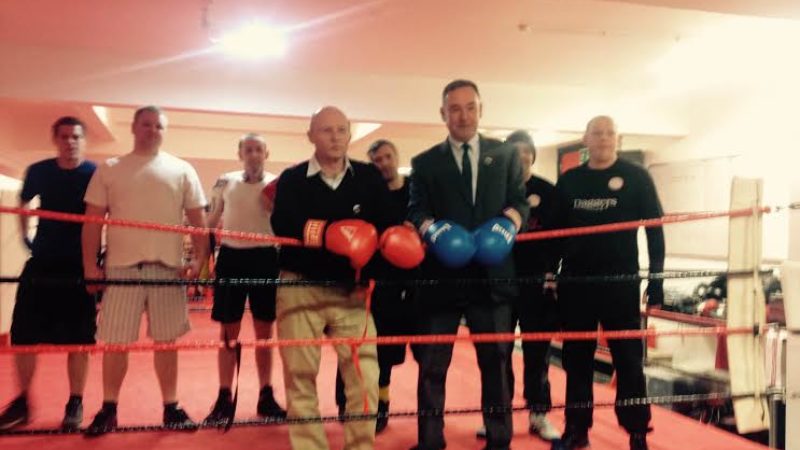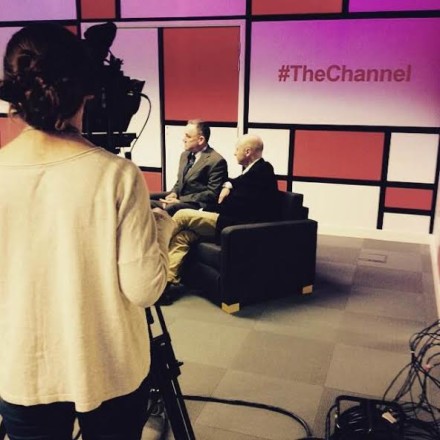

Earlier this month, Ed Miliband announced that Labour will offer a young people’s manifesto before the election: the Young Britain Manifesto. This is going to be put together following a wide-ranging, but largely informal, consultation called “Shape Your Future”.
As part of this, the Shadow Universities, Science and Skills Secretary Liam Byrne made a three-day trip along the A13, visiting seven further education (FE) colleges in six constituencies along the way. At each stop along the way, he held open meetings with students to hear what their priorities for the next Government are. I joined him, and fellow Shadow Cabinet member Jon Cruddas (who has a role in putting together the main manifesto) one afternoon during a visit to a vocational college in Cruddas’s constituency of Barking.
There are concerns about the Young Britain Manifesto. For some reason (possibly to do with classifications of “Generation Y”), the age range for young people is defined as between 16 and 35, meaning that those born the week Margaret Thatcher came to power are still classified as young in the modern day Labour Party. With an informal process for submitting suggestions, it is not obvious what affect submissions have (you can fill out a two minute consultation here, though). It is also not yet entirely clear who will be writing this youth manifesto, although presumably Ivan Lewis, Lisa Nandy and Jan Royall, as co-ordinators of the Shape Your Future project, will all have roles.
When I had the chance to ask Byrne about what would be in the Young Britain Manifesto, he confirmed that it will be a unique document containing its own policies, rather than simply a repackaged “youth” sub-section of the main manifesto. This seems like a positive step towards ensuring there will be a tangible offer to young people.
Recent polling shows Labour hold a 10 point lead among 18-24 year olds, suggesting that if the party can mobilise the potential youth vote, it could pay dividends. This, of course, is a big “if” (44% of 18-24 year olds voted in 2010, 55% of 25-34 year olds) and there is the added problem that the polling reveals Labour’s popularity among young adults is falling. In less than a year, Labour’s share of the 18-24 vote has dropped around 10 points to 32%, indicating there is no longer a “youth boost” for the party. The Green Party has seen a considerable rise in support in this time, polling a joint second place with the Tories on 22%.
What goes in this manifesto, then, could be important.
Barking & Dagenham College, where we spent the afternoon, is an impressive place. It has 12,000, of which around a quarter are aged 16-18, and is the kind of state-of-the-art building that colleges just didn’t look like 20 years ago. In fact, the building is around half a century old, and recent renovations have been led by ideas and designs from students. When a room needs a lick of paint, or a light needs rewiring, students from the relevant courses do it. There is a restaurant, a coffee shop, a hairdressers’ salon, and a clothes shop – all run by students. There’s even a TV station called #TheChannel (and yes, you pronounce the hashtag) where the presented did a better job of grilling the MPs than I did.

From there, Cruddas and Byrne move to a more open meeting with around 120 students, in order to gauge what their priorities are. After 45 minutes of discussion, a list of policies were drawn up for them to vote on. The most popular was better access to paid work experience, followed by better support for students with other responsibilities (such as children), and allowing colleges to run low-cost degree courses.
Support for an education subsidy similar to EMA was modest, while cutting tuition fees not only failed to garner many votes, but was also argued against by some. There was a widespread view that the fees were something that could be paid back later, and that the biggest barriers came in the form of more immediate costs. The message from students was not that they wanted a single route of education to be more accessible, but that they wanted greater choice. They desire a type of social mobility that allows them to pick the route of their own future.
One teacher told us that a college this was where “Education, the DWP and Skills meet”. She wasn’t wrong. One student, a young woman, told Byrne how she’d decided against going to university not because of fees, but because moving away would have left her mum hit by the Bedroom Tax. So, she enrolled at the local college. Now an adult, her mum has had her benefits reduced anyway. She feels compelled to pay her way, but finding job is difficult unless she finishes her course. She can’t find a job without skills, but can’t afford to do the training. “I feel under so much pressure,” she said. “Trapped,” replied Byrne.
Byrne, so often caricatured as a Blairite, appears to be one of the most strident supporters of a Graduate Tax in the Shadow Cabinet (along with Ed Miliband). When I offered that lowering fees had not been anything like a priority for the students here, he was quick on the defensive: “We visited a college in Newham this morning and when we put the policies to a vote there, lowering fees was way, way in front. The only person who said it wasn’t an issue was the headteacher.”
Still, what is positive about these discussions is not just that they are throwing up diverse results for Labour politicians to consider, but that they are the kind of input that you simply wouldn’t get from speaking to Labour members. I can’t imagine there would be any Labour Party meeting in the land that would have thrown up the results we saw there. We might not know yet what policies will make it through, but at least we know there’s plenty there to chew over.



More from LabourList
Lou Haigh to reveal ‘roadmap’ for public ownership of railways within first term
Rochdale Labour says brick thrown at candidate’s home with ‘f*** Labour’ note
‘Frank’s poverty mission lives on at his charity – but he’d scrap two-child cap’